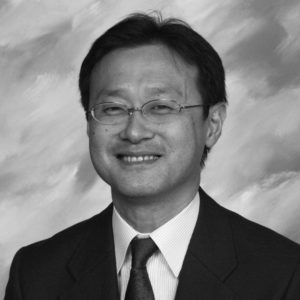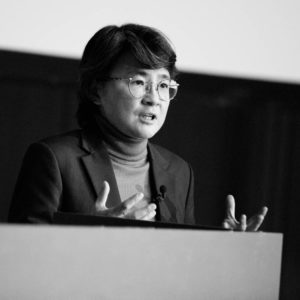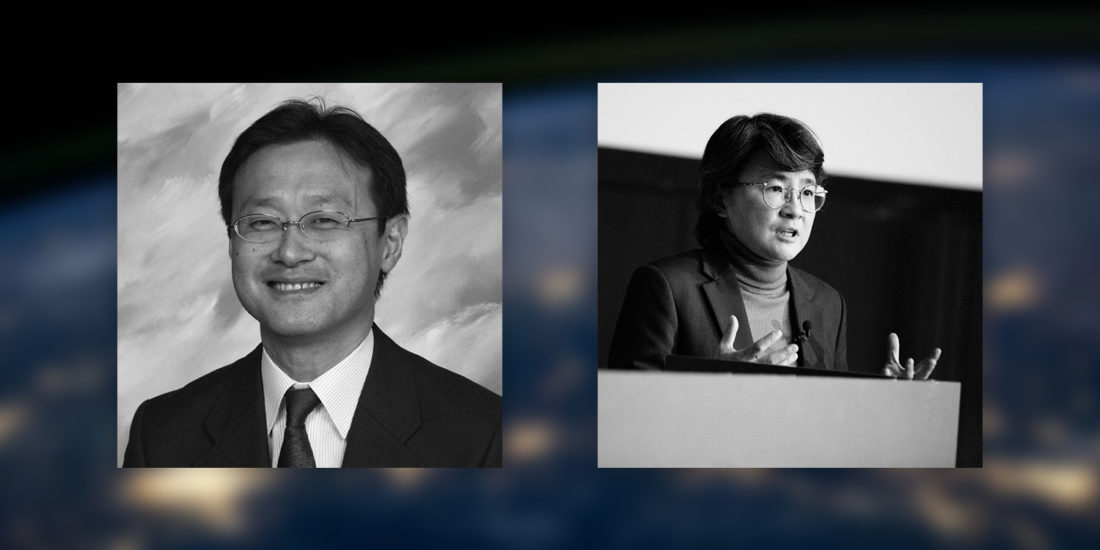Shingo Ashizawa of Toyo University, Japan, and Haruko Satoh of Osaka University, Japan will form a panel to respond to Deane Neubauer’s keynote presentation at ACEID2022, titled “Higher Education Across the Globe: A Time of Transformative Change”. The discussion will also be opened up to delegates for a Q&A session towards the end of the presentation.
This plenary will also be available for IAFOR Members to view online. To find out more, please visit the IAFOR Membership page.
IAFOR Journal of Education (Scopus Indexed Journal)

This conference is associated with the Scopus and DOAJ listed IAFOR Journal of Education.
Speaker Biography
Shingo Ashizawa
Toyo University, Japan
 Shingo Ashizawa is a professor at Toyo University in Tokyo. His research involves the comparative study of higher education management and quality analysis of the internationalisation review process. Currently, he is leading a joint-research project supported by the Japanese government agency, JSPS (Japan Society for Promotion of Science). The project is focusing on foreign credential evaluation and the comparative study of the National Qualification Framework.
Shingo Ashizawa is a professor at Toyo University in Tokyo. His research involves the comparative study of higher education management and quality analysis of the internationalisation review process. Currently, he is leading a joint-research project supported by the Japanese government agency, JSPS (Japan Society for Promotion of Science). The project is focusing on foreign credential evaluation and the comparative study of the National Qualification Framework.
His publications include The Impact of Tokyo Recognition Convention and Digital Student Portability (2019), and Student Mobility Trends and the Role of University Networks in the Asia Pacific Region – UMAP and Its New Initiatives – (2019). He serves as an advisor for MEXT on the UNESCO’s Tokyo Recognition Convention Committee as well as a referee for a number of JSPS funding bodies related to internationalisation of Japanese universities. Shingo Ashizawa is also serving as Deputy Secretary General for UMAP (University Mobility in Asia and the Pacific) as of 2016. He teaches a number of courses including “Immigration and Cross-cultural issues”, and “International Student Mobility”. As an outgrowth of these activities, he has organised several online communities for global education, including “RYUGAKU NO SUSUME Dot JP (Invitation to Study Abroad)”.
As a Fulbright scholarship grantee, Shingo Ashizawa studied at Harvard Graduate School of Education. His past professional experience includes positions at the Council on International Educational Exchange (CIEE), Keio University, Osaka University, and Meiji University.
Haruko Satoh
Osaka University, Japan

Haruko Satoh is Specially Appointed Professor at the Osaka School of International Public Policy (OSIPP), where she teaches Japan’s relations with Asia and identity in international relations. She is also co-director of the OSIPP-IAFOR Research Centre and she was previously part of the MEXT Reinventing Japan project on “Peace and Human Security in Asia (PAHSA)” with six Southeast Asian and four Japanese universities.
In the past she has worked at the Japan Institute of International Affairs (JIIA), Chatham House, and Gaiko Forum. Her interests are primarily in state theory, Japanese nationalism and identity politics. Recent publications include: “China in Japan’s Nation-state Identity” in James DJ Brown & Jeff Kingston (eds) Japan’s Foreign Relations in Asia (Routledge, 2018); “Japan’s ‘Postmodern’ Possibility with China: A View from Kansai” in Lam Peng Er (ed), China-Japan Relations in the 21st Century (Palgrave Macmillan, 2017); “Rethinking Security in Japan: In Search of a Post-‘Postwar’ Narrative” in Jain & Lam (Eds.), Japan’s Strategic Challenges in a Changing Regional Environment (World Scientific, 2012); “Through the Looking-glass: China’s Rise as Seen from Japan”, (co-authored with Toshiya Hoshino), Journal of Asian Public Policy, 5(2), 181–198, (July 2012); “Post- 3.11 Japan: A Matter of Restoring Trust?”, ISPI Analysis No. 83 (December 2011); “Legitimacy Deficit in Japan: The Road to True Popular Sovereignty” in Kane, Loy & Patapan (Eds.), Political Legitimacy in Asia: New Leadership Challenges (Palgrave Macmillan, 2011), “Japan: Re-engaging with China Meaningfully” in Tang, Li & Acharya (eds), Living with China: Regional States and China through Crises and Turning Points, (Palgrave Macmillan, 2009).
Professor Satoh is a member of IAFOR’s Academic Governing Board. She is Chair of the Politics, Law & International Relations section of the International Academic Advisory Board.
Abstract
Higher Education Across the Globe: A Time of Transformative Change
The varied impacts of the global COVID pandemic, stretching now into its third year, have and are affecting higher education throughout the world. In this session, we will examine some illustrative, albeit dramatic, changes that are impacting higher education throughout the world with a particular emphasis on the United States. Our goal is to initiate discourse on the extent and overall impact of these changes. The examples highlighted in this paper and presentation are meant to serve as “triggers” for subsequent wide-ranging discussions of the participants in this online meeting.
It is both trivial and vital to acknowledge that the past two years have been unlike any other in recent world history: trivial in the sense that the range and intensity of events are such that they have been experienced as essentially inescapable for us all, irrespective of one’s location on the planet; vital in the sense that many of the changes brought into societies by the nature of the pandemic remain beyond “knowing” and will “play out” in years to come. As we seek to enumerate, acknowledge and analyze the pandemic’s effects on higher education as a vital segment of society that has been dramatically impacted, it is important to “broaden the frame” of such an inquiry by acknowledging further that the pandemic “arrived” into a world of higher education that was already on the cusp of yet another major transformative force that was both “unleashed” and embodied within the complex dynamics of what was has come to accept as the 4th Industrial Revolution (4th IR) generated by the impacts of artificial intelligence on the world.
These sessions at ACEID2022 are an occasion to invite inquiry about how these two macro forces are confronting each other within higher education settings across the globe and to speculate on which changes that may emerge from this confluence of forces may prove to be enduring. However one constructs such analyses, it seems beyond question that important aspects of higher education as we knew and experienced it prior to the pandemic will be changed, and perhaps with sufficient cumulative effect that our intellectual task in the near future will be to conduct a continuous assessment of this changing environment and begin a disciplined set of speculations about the nature and impact of what we can identify as elements within these powerful change dynamics.
In the following our intention is to create some ‘discussion areas' based around recent speculations about the various directions in which higher education in all its forms may take. Our particular focus is to gather together some recent speculations on transformations that may occur as a result of the pandemic and/or the rapid progressions of artificial intelligence within the environment that it has created. Having created a generalized context by doing so, our further intention is conduct a critical open discussion of these continually emergent transformative dynamics which we hope will generate new insights into the overall phenomena and perhaps create new dimensions for further research.
Some Aspects for Reflection
Here I would like to offer for our collective consideration the following “elements of change” that have been variously pointed out as consequences of the Pandemic. My intention is to very briefly frame these observations within the context of American higher education and invite colleagues from other parts of the higher education environment to respond to the intent of the observation with information from their own higher education reference setting.

